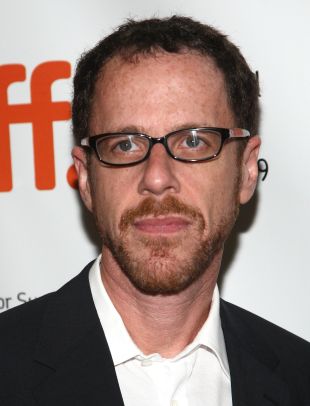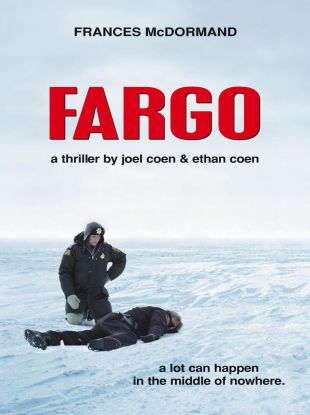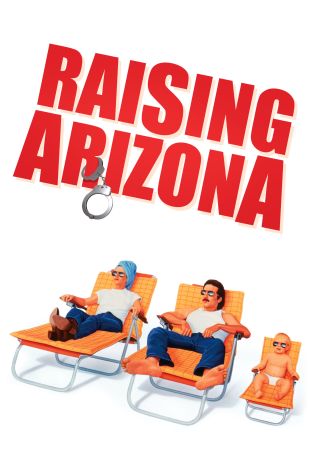Working alongside his brother Joel, Ethan Coen is widely considered one of the most visionary and idiosyncratic filmmakers of the late 20th century. Combining thoughtful eccentricity, wry humor, arch irony, and often brutal violence, the films of the Coen brothers have become synonymous with a style of filmmaking that pays tribute to classic American movie genres -- especially film noir -- while sustaining a firmly postmodern feel.
Born in St. Louis Park, MN, in 1957, Ethan Coen studied philosophy at Princeton University. Soon after he graduated, he and his brother began writing their first screenplays, and, in 1984, they made their debut with Blood Simple. Both of them wrote and edited the film (using the name Roderick Jaynes for the latter duty), while Joel took the directing credit and Ethan billed himself as the producer. It earned considerable critical acclaim and established the brothers as fresh, original talent. Their next major effort (after Crimewave, a 1985 film they wrote that was directed by Sam Raimi), 1987's Raising Arizona was a screwball comedy miles removed from the dark, violent content of their previous movie, and it won over critics and audiences alike. Their fan base growing, the Coens went on to make Miller's Crossing (1990), a stark gangster epic with a strong performance from John Turturro, whom the brothers also used to great effect in their next film, Barton Fink (1991). Fink earned Joel a Best Director award and a Golden Palm at the 1991 Cannes Film Festival, as well as the festival's Best Actor award for Turturro. A surreal, nightmarish movie revolving around a writer's creative block, it was a heavily stylized, atmospheric triumph that further established the Coens as visionary arbiters of the bizarre.
Their 1994 follow-up to Barton Fink, The Hudsucker Proxy, was a relative critical and commercial disappointment, though it did boast the sort of heavily stylized, postmodern irony that had so endeared the brothers to their audience. Whatever failings The Hudsucker Proxy exhibited, however, were more than atoned for by the unquestionable success of the Coens' next film, Fargo (1996). A black, violent crime comedy with a surprisingly warm heart, it recalled Blood Simple in its themes of greed, corruption, and murder, but provided more redemptive sentiment than was afforded to the characters of the previous film. The brothers shared a Best Original Screenplay Oscar for their work, and another Oscar, for Best Actress, went to Frances McDormand, to whom Joel had been married since 1984. Following Fargo, the Coens went on to make The Big Lebowski in 1998. A blend of bungled crime and warped comedy, Lebowski was a laid-back, irreverent revision of the hardboiled L.A. detective genre. It met with mixed critical reception, though it did receive a Golden Bear nomination for Joel Coen at the Berlin Film Festival. In 1999, Ethan closed out the decade by publishing Gates of Eden, a collection of his short stories.
The Coens next served up the depression-era comedy O Brother, Where Art Thou? (2000), which turned out to be their biggest box-office success at that time and spawned a Grammy-winning soundtrack. 2001 saw the release of The Man Who Wasn't There, yet another ode to film noir and another award winner at Cannes. In 2003, Ethan and Joel were credited as executive producers on Terry Zwigoff's hit comedy Bad Santa largely due to the fact that the origin of the film's story came from the Coens. That same year, the brothers re-teamed with George Clooney (one of the stars of O Brother) for the screwball comedy Intolerable Cruelty. In 2004, the duo released The Ladykillers starring Tom Hanks, a remake of the classic British comedy. The film marked the first time Ethan Coen officially shared the directing credit with Joel, as well as the first time they shared producer credit.
After a three year layoff from movies, the brothers returned with an adaptation of Cormac McCarthy's No Country for Old Men. The taut but philosophically minded thriller opened to nearly universal praise and became one of the two films to dominate year end critics and industry awards. Joel and Ethan won the best Director award from the Director's Guild of America, and found themselves nominated as directors, writers, and producers at that year's Oscar telecast. That same year, Coen saw three short plays he wrote staged off-Broadway.
They followed their award-winning film with the jet-black comedy Burn After Reading, but in 2009 they released one of their most idiosyncratic movies, A Serious Man. That film earned the brothers another nomination for Best Screenplay from the Academy.
Their remarkable run continued with 2010's remake of True Grit, a film that once again garnered Oscar nominations for directing, screenwriting, and Best Picture, in addition to acting nods in various categories.



